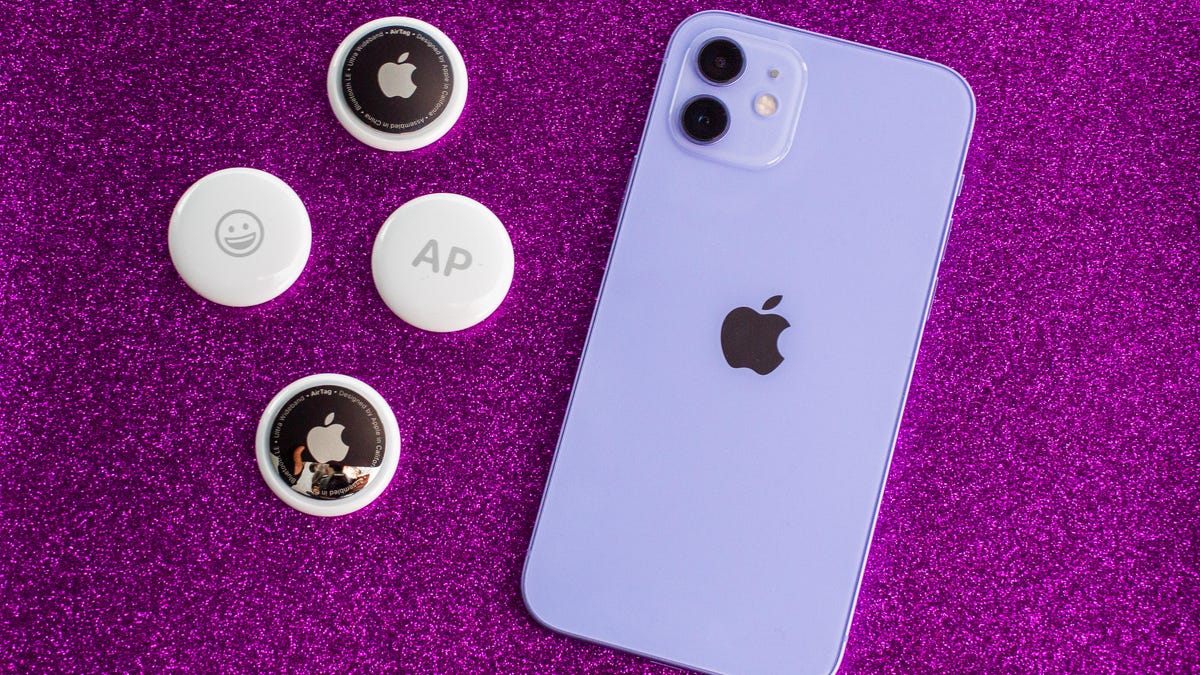Apple to update AirTags with new privacy warnings, better warning sounds, smarter Find My tracking
This is the latest of several privacy updates Apple's announced for its AirTags item trackers since they were released last year.

Apple's AirTag sensors have raised some privacy concerns, which the company is addressing.
Apple is adding new privacy warnings, sound alerts and tracking code to its AirTags sensors, the latest in a series of efforts it's made to improve the security and privacy of the devices and its Find My network.
The software updates will display new warnings to people setting up AirTags, reminding them that using the technology to track people without their consent is a crime in many regions of the world. It also notes that Apple built AirTags so that law enforcement can request identifying information about the owner.
"We design our products to provide a great experience, but also with safety and privacy in mind," Apple said in a statement announcing the changes Thursday. "We're committed to listening to feedback and innovating to make improvements that continue to guard against unwanted tracking."
Apple's adjustments to its AirTags and Find My technology mark its latest attempts to bolster the privacy and security around its devices. The tech giant first released its AirTags last year, for $29 apiece, or $99 for a four-pack. Apple pitched the half-dollar-coin-sized devices as an easy way to find lost keys, book bags and other objects using Apple's Find My network technology. Apple also touted AirTags security, saying each device uses frequently changing identifying code and encrypted communication to deter hacking and unintended tracking.
Apple's new warning to AirTag owners.
Privacy and victims rights advocates have worried, though, that AirTags can be and are being abused, despite Apple's best efforts. Critics noted that because Apple's Find My network has more than 1 billion active iPhones and other devices that quietly share the location of any AirTags or other Find My devices nearby, it likely has greater reach than any other device tracking service.
"The alerts system Apple has notifying potential victims of any unwanted tracking has helped shine a light on a problem that existed long before AirTags came on the market," said Erica Olsen, director of the Safety Net Project at the National Network to End Domestic Violence, in a statement. "We hope others will follow their lead."
In June, Apple updated its AirTags with new software meant to deter abuse by changing the amount of time before an AirTag alerts a nonowner to its presence. Apple shortened that period to between 8 and 24 hours, from its initially designed three days.
In December, the company took another step, releasing its free Tracker Detect app for Android phones, allowing people to actively scan for nearby Find My devices that have been separated from their owners for at least 10 minutes.
With the forthcoming software updates, Apple said it'll also be easier to find unwanted AirTags using its precision finding technology, which presents a compass-like arrow on a phone screen when you're searching for the device. Apple also said it plans to adjust the "tone sequence" of AirTags noises when warning someone about unwanted tracking. More of the the "loudest tones" will make the device more findable.
The company is also addressing "unknown accessory" warnings that sometimes appear on people's phones. Apple said it found that sometimes AirPods have been responsible for those warnings, and will now identify themselves as AirPods instead of an "unknown accessory" to help better identify what might be nearby.
In an effort to help people learn more about AirTags privacy, both on their own and in the event they find an unwanted AirTag, Apple updated its online support documents to help people control location settings on their phones and understand the different types of alerts they might get from an AirTag or other Find My devices. The document also includes links to victims organizations in the US, UK and Australia.

